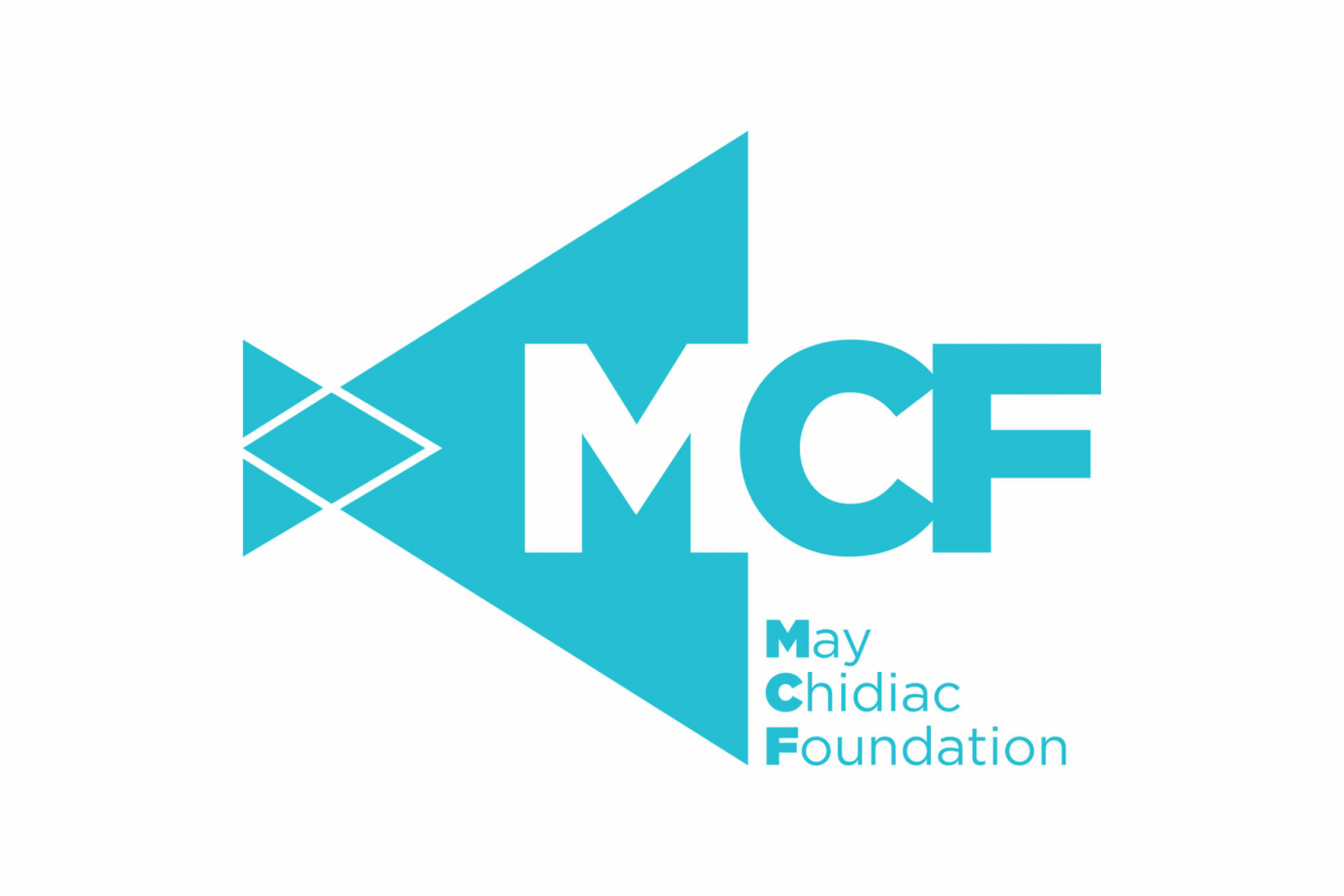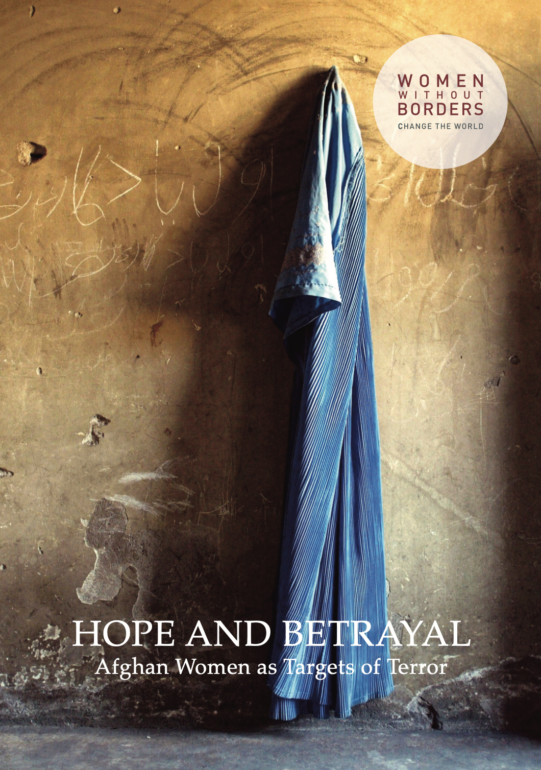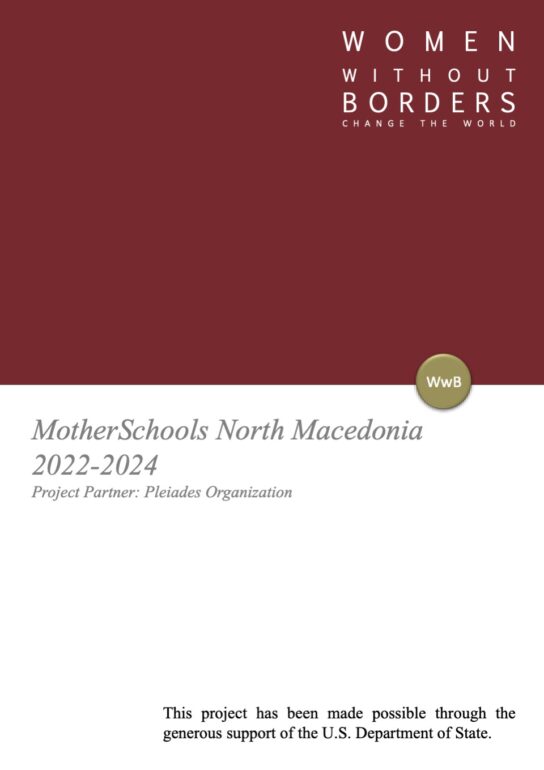Women without Borders’ second global Sisters Against Violent Extremism (SAVE) network conference ‘Security in Safe Hands; Women Make the Difference!’ takes place in Vienna between 26 February and 1 March 2010. The working conference aims to develop concrete strategies that SAVE network country chapter groups can apply in their respective countries. Its focus rests on strengthening SAVE network groups and improving the efficacy of their local operations. The conference participants will offer insights into context-specific dynamics leading to radicalisation in their home countries, and they will discuss how to draw on women’s experiences and unique abilities to challenge extremist ideologies in their families and immediate surroundings.
While combating violent extremism has been the preserve of male soldiers, politicians, policymakers, and law enforcement agents, civil society approaches and the potential roles of women in preventing violent extremism (PVE) have tended to be overlooked. Women without Borders (WwB) is thus building up the Sisters Against Violent Extremism (SAVE) network. As the first global female counterextremism platform, the SAVE network seeks to unite women across boundaries and divides, position them as agents of change in their communities, and bring meaningful voices to the attention of policy-shapers and politicians, and other stakeholders, the world over.
The second global SAVE network conference convenes fifteen family members of victims of terrorist attacks and female civil society leaders, researchers, and activists from eight countries to develop effective and practical strategies for combating violent extremism. ‘Security in Safe Hands; Women Make the Difference!’ takes place between 26 February and 1 March 2010.
In aiming to develop concrete strategies that these changemakers can apply in their respective countries, the focus of the conference rests on strengthening SAVE network groups and improving the efficacy of their local operations. The conference participants will offer insights into context-specific dynamics leading to radicalisation in their home countries, and they will discuss how to draw on women’s experiences and unique abilities to challenge extremist ideologies in their families and immediate surroundings.
Bringing together activists who already work within the SAVE network with new members, presents a unique opportunity to share experiences, exchange views, and promote female-led global security. The wide range of topics to be discussed include local and international challenges, how to harness new media for peacebuilding purposes, how storytelling can help to overcome deep-seated divisions, and ways of empowering victims to approach and tackle taboo topics.
The participants:
Anita Pratap: Documentary filmmaker, author, and journalist from India. Anita was the South Asia Bureau Chief of CNN until January 1999, during which time she covered all the major stories in the region, including nuclear tests, the ethnic war in Sri Lanka, the Taliban takeover of Afghanistan, conflicts in India’s Kashmir and North East, women, poverty, and terrorism-related issues. Anita worked as an independent documentary filmmaker, scripting and directing films on topics ranging from war to traditional culture. She is also the author of ‘Island of Blood’ (2003) and ‘Unsung’ (2007).
Anne Carr: Dialogue practitioner from Northern Ireland who has been working to reconcile and reintegrate divided communities in Northern Ireland for more than 25 years. She recently facilitated a pilot project on Women in Conflict, which encourages women across Northern Ireland to share their experiences of the conflict as well as their hopes and fears regarding the peace process. Anne was involved in both the development of the Northern Ireland Women’s Coalition and the Belfast/Good Friday Agreement. She was a founding parent of the first integrated primary school established outside Belfast and chaired the Board of Governors there for fourteen years. Anne received the 2008 Community Relations Council Award for exceptional achievement in the field of community relations in Northern Ireland and the 1999 award from the Northern Ireland Baha’i Community for her work in peacebuilding.
Archana Kapoor: Proprietor of Archana Kapoor Productions, publisher of the Hardnews magazine, and independent filmmaker. Archana is also the founder of SMART, an NGO that works with marginalised communities in India. SMART has mobilised thousands of women to participate in empowerment and economic sustainability programmes, and she is now setting up a Community Radio to inform, educate, and empower the community.
Arshi Saleem Hashmi: Senior Research Analyst at the Institute of Regional Studies and an Adjunct Assistant Professor at the National Defense University in Pakistan. Prior to her work at Institute of Regional Studies, Arshi has worked as a researcher in Washington, DC with the United States Institute of Peace (USIP), the Pew Forum on Religion and Public Life, and the Middle East Institute. Arshi has published widely, including the book Conflict Transformation from Ethnic Movement to Terrorist Movement: Case Studies of Tamils in Sri Lanka and Mohajirs in Pakistan. Arshi Hashmi is a member of Women in International Security (WIIS) and the United States Institute of Peace Alumni Association.
Asma Asfour: Council Member of the Sinjel Municipality in Palestine. Her candidacy was prompted by the establishment of a new quota system that required female representatives in local councils. Asma strongly believes that the increased participation of women in decision-making processes—both in politics and in civil society—helps Palestinians to address internal and regional issues. As she stated in a recent op-ed piece for the Common Ground News Service, ‘It stands to reason that a Palestinian society with a greater degree of social equality will be in a better position to reach a sustainable resolution with Israel and to build a strong independent state’. Asma, like many other Palestinian women, dreams of an independent state that has peaceful relations with its neighbours and gender equality among its citizens.
Christie Coombs: Founder of the Jeffrey Coombs Foundation and a co-founder of the Massachusetts Military Heroes Fund. After her husband Jeffrey Coombs was killed in the 9/11 attacks on the World Trade Center in New York City, Christie became a voice for families and individuals affected by terrorism in Massachusetts. She established the Jeffrey Coombs Foundation in honour of her husband and has raised over $250,000 since 2001 to assist Massachusetts families struggling emotionally or financially due to death or illness within their family, to aid local schools, and to host special programmes for Massachusetts military families.
Fahmia al-Fotih: SAVE network coordinator in Yemen is currently involved in building a vibrant chapter in her country. She has taken the initiative to partner with Women Journalists Without Chains, an organisation that acts as an advocate for freedom of speech and freedom of the press, especially for female journalists. She is developing a community of women to combat violent extremism on the ground. Previously, Fahmia worked as a consultant for USAID as well as with the United Nations Development Programme (UNDP) as a Research and Knowledge Management Associate. She also worked at Yemen Times, Yemen’s first English-language newspaper, as a reporter, editor, and translator.
Hanan Ibrahim: Founder of the Somali Family Support Group (SFSG), a community organisation serving Somali families, East Africans, Horn of Africa asylum seekers and refugees. SFSG provides a range of services including a family advice centre, promotion of health awareness and basic literacy, skills development, and job-search advice. Hanan also runs a women’s group, Shaah iyo Sheeko (tea and chat), which promotes women’s rights by supporting educational and professional achievement, mentoring, and community empowerment. Hanan has further developed the Taaleen Dialogues to educate people on the culture, values, and contributions of migrant communities.
Hilde Rapp: Co-Director for the Centre for International Peace-Building in the UK. She is the Director of the Nepalese Health Network, Co-Director of the Centre for International Peace-Building, for which she acts as a representative to the United Nations, and she has been a director of the UK Ministry for Peace initiative. At the Centre for International Peace-Building, Hilde focuses on issues of security, preventing and ending violent conflict by tackling its root causes, and creating the conditions for rebuilding society, which must include overcoming trauma through improving health and education and forming bonds of solidarity.
Lily Munir: Director of the Center for Pesantren and Democracy Studies (CePDeS) in Indonesia, an NGO which she co-founded in 2003. CePDeS envisions the birth of progressive Muslim leaders through democracy and human rights education in Muslim society. Lily has worked independently as a researcher, activist, and consultant specifically on the issues of gender, women’s and human rights, and political Islam. She has published numerous articles and presented at various conferences internationally. Lily is also a national board member of Muslimat Nahdlatul Ulama (MNU), the women’s wing of NU, one of the largest independent Islamic organizations in the world. She served as the only woman and only Muslim on the International Commission of the Joint Elections Management Body (JEMB) for the Afghan Elections and as a member of the UN Election Experts Monitoring Team (EEMT) in Nepal. Through CePDeS, Lily recently initiated the birth of SAVE network Indonesia, which has mobilised over one hundred students against violence and terrorism to date.
May De Silva: Director of Women into Politics, a cross-community organisation in Northern Ireland that practices and encourages the principles of democracy, feminism, and community development. Women into Politics works in partnership with grassroots organisations to raise awareness of the principles of community relations, strategies for peacebuilding, and promoting reconciliation within communities. May has more than twenty years of experience working in charitable and statutory sectors in the UK, and her
main goal is to increase the number of women in decision-making at all levels in society. May is the Chairperson of the Northern Ireland Policing Board’s Women’s Strategic Group, a member of the Belfast City Council’s Good Relations Partnership, and a Board Member of Women’s News.
Nadia al Sakkaf: Editor-in-Chief at Yemen Times, the only woman in Yemen currently to hold such a position. Nadia has been working in media since July 2000 when she joined the Yemen Times as a translator and reporter. She then steadily rose the ranks until she became Editor-in-Chief in 2005. Yemen Times is the first and largest English-language newspaper in Yemen. Her accomplishments in journalism were recognised by the international media community when she received the inaugural Gebran Tueni Award in 2006, which honoured her courage in defending the ideals of freedom of the press, demonstrated excellence in leadership, and high managerial and professional standards. Her areas of expertise are development issues, gender, and media in the Middle East.
Robi Damelin: Israeli member of the Parents Circle-Bereaved Families Forum. In 2002, Robi’s son David was killed by a Palestinian sniper along with seven soldiers and three civilians. David was on reserve duty, serving in the occupied territories. After her son was killed, Robi joined the Bereaved Families Forum, eventually closing her PR firm to focus full-time on working with them. Rather than channelling their losses into revenge, the Israeli and Palestinian families in the group work together for reconciliation to find a just solution to the conflict. Today, Robi Damelin speaks out in support of Israeli-Palestinian reconciliation both locally (throughout Israel and the occupied Palestinian Territories) and globally. She has been featured in Just Vision’s award-winning documentary film Encounter Point.
Seham Ikhlayelis: Palestinian member of the Parents Circle-Bereaved Families Forum. When Seham grew up in Palestine her mother frequently was arrested and imprisoned by Israeli authorities, and her three brothers were arrested soon after Seham was married at the age of seventeen. In 2000, one of Seham’s brothers was critically wounded, another was shot and killed at a checkpoint by an Israeli soldier, and the third was in an Israeli jail. Following her mother’s example, Seham joined the Parents’ Circle in 2006. Although previously she had felt incapable of promoting non-violence given her family’s history, Seham changed her mind when Israeli members of the Parents’ Circle came to pay their respects to her mother. Today, Seham coordinates the women’s committee of the Parents’ Circle.
Vinita Kamte: Indian author whose husband, Police Commissioner Ashok Kamte, was killed during the 26/11 attack in Mumbai in 2008. Many questions remained about the circumstances of his death, which Vinita set out to answer. Those questions turned into a best-selling book, ‘To The Last Bullet’, co-authored with journalist Vinita Deshmukh. In the book, Vinita writes about her personal quest to find out the truth about how her husband died and why the police were hiding the circumstances of his death from her. She discovered negligence on the part of the police force, and that her husband’s final actions as a police officer officer—wounding the only terrorist that would be captured alive—helped to unravel the story behind 26/11.





